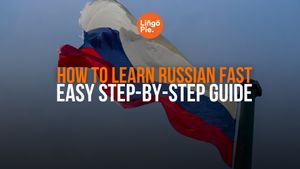Did you know that in Russia, Christmas is celebrated on January 7 instead of December 25?
Russian Christmas is a special holiday full of unique traditions, and saying Merry Christmas in Russian is a fun way to join in!
In this article, you’ll learn how to say Merry Christmas in Russian, pick up some Russian Christmas vocabulary, and discover a few Russian Christmas traditions that make this holiday so memorable.
- How To Say Hello In Russian?
- Russian Slang Words For Expats
- Best Way To Learn Russian Fast

How To Say Merry Christmas In Russian?
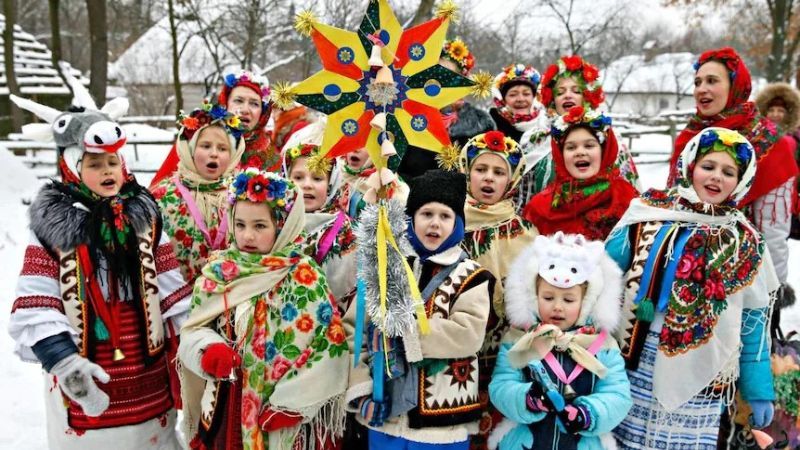
To say Merry Christmas in Russian, you can use the phrase "С Рождеством Христовым!" It directly translates to "With Christ's Birth!" and is a traditional way to say Merry Christmas in Russian, emphasizing the religious significance of the holiday.
For a shorter, more casual version, you can say "С Рождеством!" This is like saying Merry Christmas in English and is common among friends and family.

Other Common Christmas Greetings In Russian
Here are some other common Russian Christmas phrases, along with their translations and phonetic pronunciations:
| Russian Phrase | Pronunciation | English Translation |
|---|---|---|
| С Новым годом! | S Novym Godom! | Happy New Year! |
| Мир и радость | Mir i Radost | Peace and Joy |
| С праздниками! | S Prazdnikami! | Happy Holidays! |
| С Рождеством Христовым! | S Rozhdestvom Khristovym! | Merry Christmas! (formal) |
| С наступающим! | S nastupayushchim! | Happy New Year (informal, wishing someone a happy upcoming New Year) |
| Здоровья и счастья! | Zdorov'ya i schast'ya! | Health and Happiness |
| Поздравляю с Рождеством! | Pozdravlyayu s Rozhdestvom! | Congratulations on Christmas! |
| Счастливого Нового года! | Schastlivogo Novogo goda! | Wishing you a Happy New Year! |
Read Also:
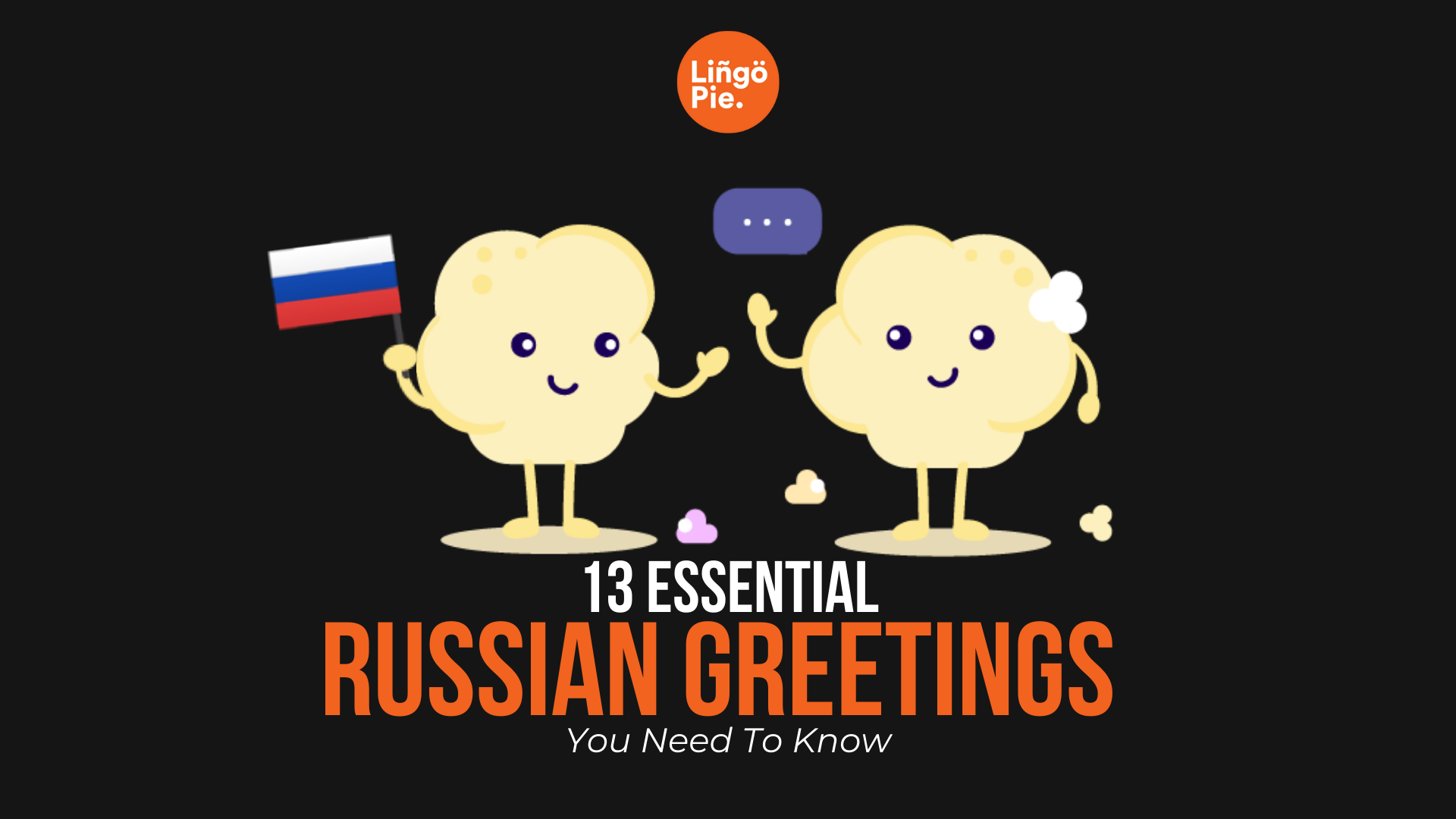
Christmas Vocabulary In Russian
Here's a table with key Christmas vocabulary in Russian, along with their pronunciations and English translations:
| Russian Word | Pronunciation | English Translation |
|---|---|---|
| Рождество | Rozhdestvo | Christmas |
| С Рождеством! | S Rozhdestvom | Merry Christmas! |
| Ёлка | Yolka | Christmas Tree |
| Подарки | Podarki | Gifts |
| Снег | Sneg | Snow |
| Дед Мороз | Ded Moroz | Santa Claus (Grandfather Frost) |
| Снегурочка | Snegurochka | Snow Maiden (Santa’s granddaughter) |
| Сочельник | Sochelnik | Christmas Eve |
| Кутья | Kutya | Traditional Christmas Dish (wheat or rice with honey) |
| Пелмени | Pelmeni | Dumplings (a popular dish during the holidays) |
| Рождественская служба | Rozhdestvenskaya sluzhba | Christmas Service (church service) |
| Звезда | Zvezda | Star (often associated with the Christmas star) |
Russian Christmas Traditions
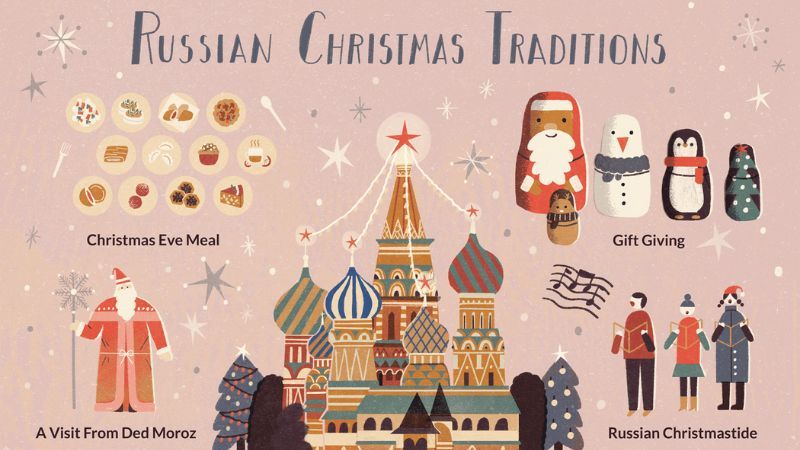
1. Date of Celebration
In Russia, Christmas is celebrated on January 7, rather than December 25. This is due to the Russian Orthodox Church's use of the Julian calendar, which is 13 days behind the Gregorian calendar used in most of the world. Therefore, while many countries celebrate Christmas on December 25, Russians observe it two weeks later. This holiday falls right in the middle of the winter season, adding a special charm to the festivities.
2. Ded Moroz and Snegurochka
One of the most beloved figures in Russian Christmas celebrations is Ded Moroz (Grandfather Frost), who is similar to Santa Claus. However, Ded Moroz is a bit different: he is often depicted wearing a blue or red coat, and he is accompanied by his granddaughter, Snegurochka (the Snow Maiden). Together, they bring gifts to children, but they do so not on Christmas Eve, but New Year’s Eve. Ded Moroz and Snegurochka are important symbols of New Year’s celebrations in Russia, with Ded Moroz delivering presents and spreading holiday cheer.
3. Traditional Foods
Russian Christmas meals are rich in tradition and are a big part of the holiday. Some popular dishes include:
Kutya: A sweet dish made from grains, often wheat or rice, mixed with honey, poppy seeds, and nuts. It’s typically eaten on Christmas Eve, symbolizing prosperity and the memory of ancestors.
Pelmeni: Dumplings filled with meat (often pork, beef, or lamb), which are a popular dish throughout the winter holidays. These are sometimes served with sour cream and are a comfort food for many Russian families.
Borscht: While not specifically Christmas-only, this hearty beet soup is enjoyed during the winter months, and many families include it in their Christmas celebrations.
Pirozhki: Small pastries filled with various fillings like meat, vegetables, or sweet fillings like jam or cottage cheese.
The holiday meals are often shared with family and close friends, making the food an important part of the communal and celebratory atmosphere.
4. Religious and Cultural Customs
Christmas in Russia is deeply connected to religious and cultural traditions, especially for those who observe it in the Russian Orthodox Church.
Midnight Mass: For many Russian Orthodox Christians, the Christmas Eve service (which occurs on January 6) is a significant event. It often includes a midnight mass, where families gather at church to celebrate the birth of Christ. This service is followed by a festive meal at home, which is often a long and meaningful family affair.
Family Gatherings: On Christmas Eve, families come together to celebrate. The evening often begins with attending the church service, followed by a festive meal and a time of relaxation and bonding. It’s a time for reflection and spiritual observance.
5. Other Christmas Traditions
In Russia, Christmas is not the main winter holiday—New Year’s Eve holds more importance. The festivities around New Year's are very similar to those of Christmas in other countries, with much focus on family, gifts, and a festive atmosphere. However, Christmas is still a deeply religious occasion for many, with the church playing a central role in the celebration.
Read Also:
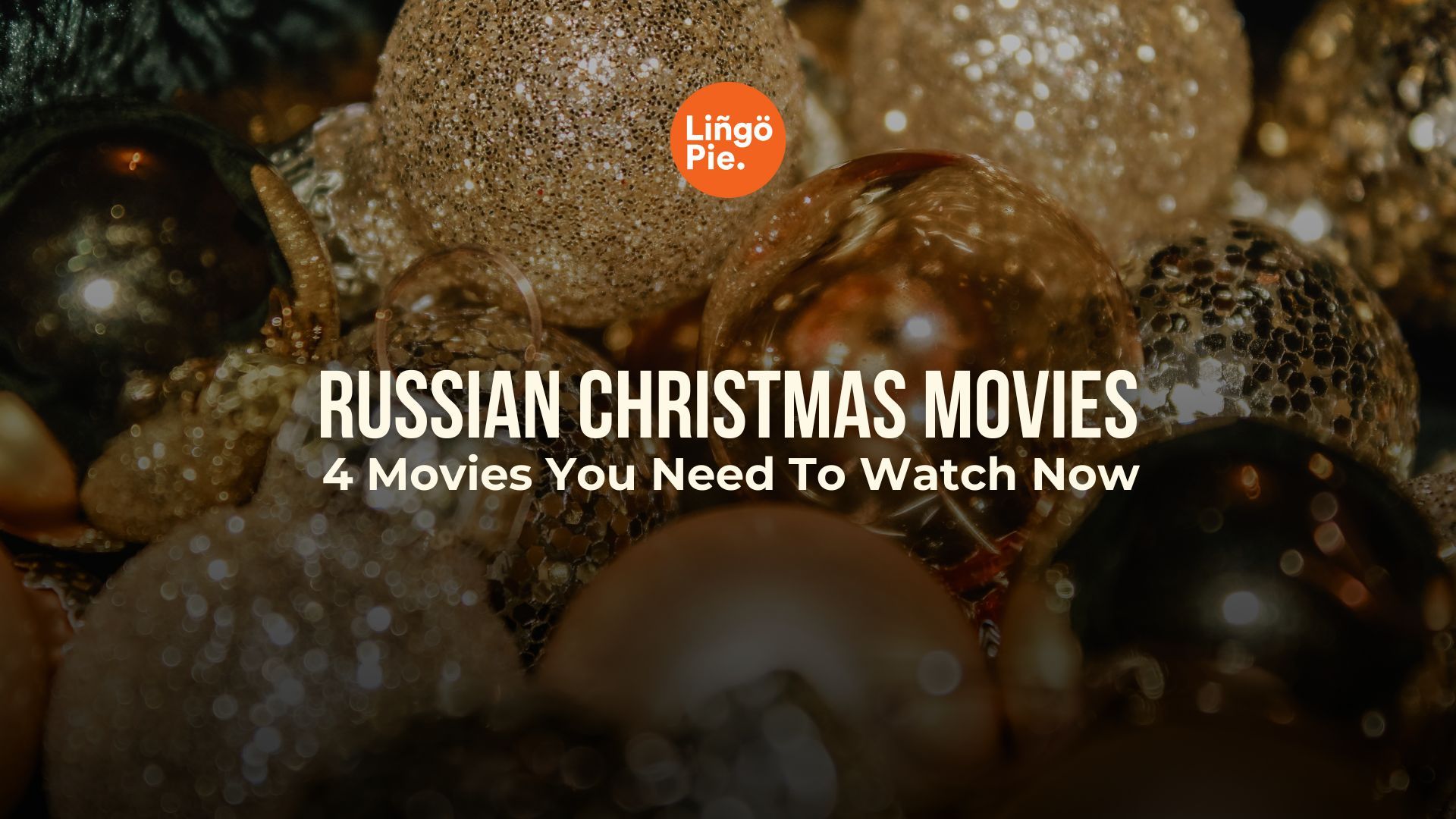
How Christmas And New Year’s Differ In Russia
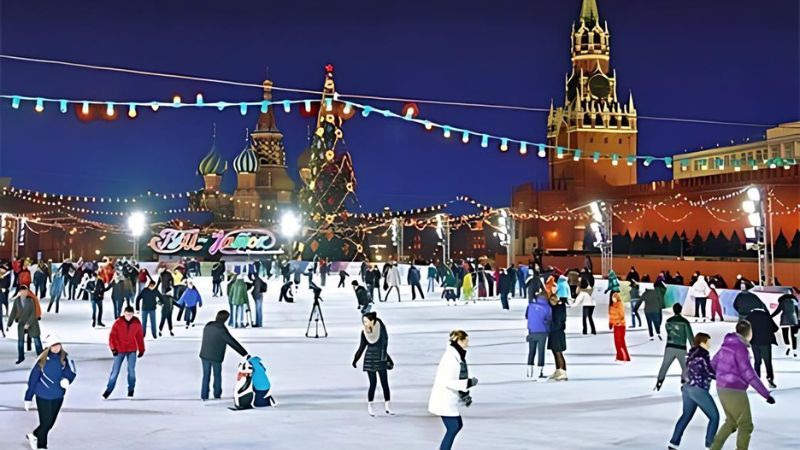
In Russia, New Year’s Eve is by far the more significant winter holiday compared to Christmas. While Christmas is celebrated with religious observances, New Year’s Eve holds the spotlight as the major winter celebration, filled with festive traditions, vibrant decorations, and the promise of a new beginning.
The Prominence of New Year’s Eve
New Year’s Eve is the grand holiday in Russia, marked by an atmosphere of excitement and joy. The evening is celebrated with:
- Fireworks: As midnight approaches, cities across Russia light up with fireworks, creating a festive and celebratory atmosphere.
- Decorations: Just like in many other parts of the world, Russian homes and public spaces are decorated with sparkling lights, colorful ornaments, and an artificial New Year’s tree (often a yolka, the Russian word for Christmas tree).
- Feasts and Toasts: Families and friends gather for a lavish meal, and champagne is usually enjoyed as they raise toasts to welcome the New Year.
- Gifts: Similar to the Western tradition of exchanging gifts at Christmas, Russians exchange presents on New Year’s Eve, making it a time for giving and celebrating together.
The prominence of New Year’s over Christmas is largely due to the Soviet era, when Christmas was largely removed from the official calendar. The Soviet government, which was officially atheistic, abolished Christmas celebrations in 1929 and replaced them with New Year's Eve as the main winter holiday. Although Christmas later became an official holiday again in Russia after the fall of the Soviet Union, New Year’s Eve continued to be the more widely celebrated occasion.
Thus, New Year’s Eve remains the main time for family gatherings, gift-giving, and festive celebrations, while Christmas has retained more of its religious and traditional significance, often celebrated with church services and family meals.
Learn Russian To Celebrate Christmas In Russia!
In conclusion, Christmas in Russia is celebrated a bit differently than in many other countries. While New Year's Eve is the biggest holiday, with fireworks, gifts, and Ded Moroz, Christmas is more of a religious occasion, celebrated with church services and family traditions. Learning about these unique traditions can be a fun way to understand Russian culture better!
If you're interested in learning more about the Russian language and culture, Lingopie is a great resource. It helps you learn Russian through authentic movies and TV shows making it easier to learn the language by immersing yourself in the real-life Russian language and culture!
Try Lingopie for free and start learning Russian one movie at a time!
Frequently Asked Questions
1. Why does Russia celebrate Christmas on Jan 7?
Russia celebrates Christmas on January 7 because the Russian Orthodox Church follows the Julian calendar, which is 13 days behind the Gregorian calendar used by most of the world. This is why Christmas falls later for Russians.
2. Which country celebrates Christmas on January 7th?
Besides Russia, several other countries with Orthodox Christian traditions celebrate Christmas on January 7, including Ukraine, Serbia, Ethiopia, and Georgia.
3. How do Russian people say Christmas?
In Russian, Christmas is called "Рождество" (Rozhdestvo).
4. How do people say "Merry Christmas" in Russia?
To say "Merry Christmas" in Russian, you can say "С Рождеством Христовым!" (S Rozhdestvom Khristovym!).





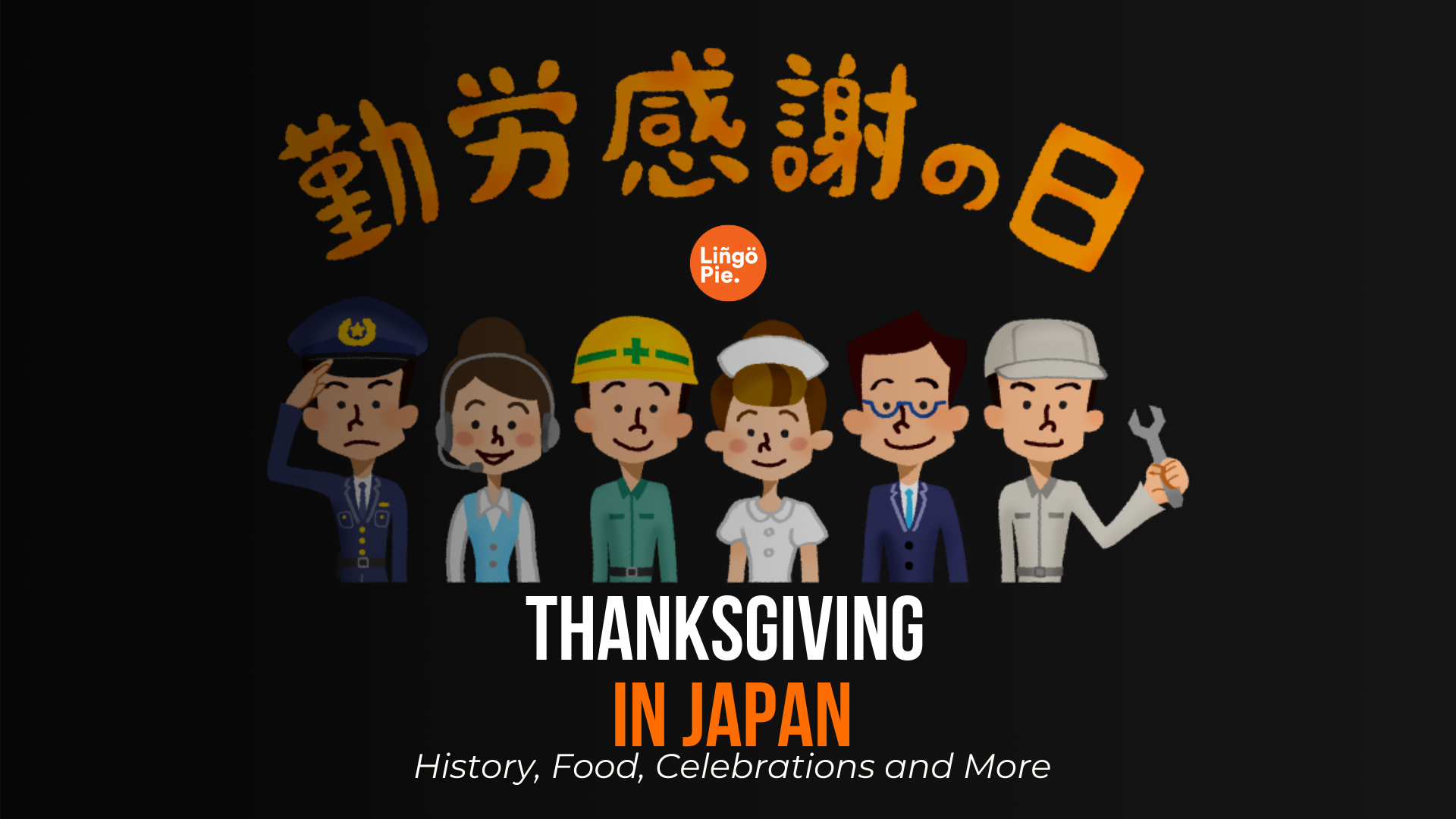

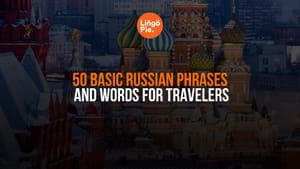
![Russian Alphabet: Everything You Need to Know [2025]](/blog/content/images/size/w300/2025/04/Russian-alphabet-.jpg)
